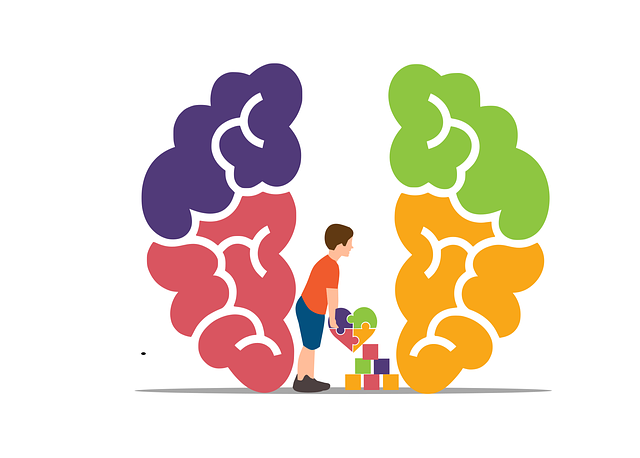Understanding mental health policies is crucial for advocating accessible, quality therapy for individuals with superior relationship issues. By analyzing service provision, insurance, funding and patient rights, advocates can identify disparities and push for evidence-based solutions involving policymakers, healthcare providers and the public. This collaborative approach aims to enhance mental wellness through education, community mindfulness programs, and improved policies promoting integrated care, trauma support, and tailored therapy services, ultimately fostering healthier relationships.
Mental health policy analysis and advocacy are vital components in fostering comprehensive care and addressing societal challenges. This article explores the intricate relationship between mental health policies, therapy accessibility, and relationship issues. We delve into understanding the foundational aspects of mental health policy, critically analyzing its impact on treatment outcomes. Furthermore, we present effective strategies for policy change, aiming to enhance mental health care systems and improve superior relationship issues therapy. By examining these key areas, we advocate for informed decision-making to create a more supportive environment for individuals seeking mental health services.
- Understanding Mental Health Policy: A Foundation for Advocacy
- Analyzing the Impact of Policies on Therapy and Relationship Issues
- Effective Strategies for Policy Change and Improvement in Mental Health Care
Understanding Mental Health Policy: A Foundation for Advocacy

Understanding Mental Health Policy forms the cornerstone for effective advocacy efforts. It involves comprehending the intricate web of laws, regulations, and guidelines that shape mental healthcare services. By delving into policy documentation, one uncovers critical aspects such as service provision, insurance coverage, funding mechanisms, and patient rights. This knowledge is pivotal in identifying gaps and disparities in current systems, allowing advocates to champion evidence-based solutions.
Mental health policy advocacy leverages this understanding to drive change. It involves strategic engagement with policymakers, healthcare providers, and the public. Effective advocacy can lead to improvements in access to quality mental wellness journaling exercises and therapy for all, including those facing superior relationship issues. Well-designed mental health education programs and initiatives promoting mindfulness meditation can also be implemented, fostering a culture of mental wellness throughout communities.
Analyzing the Impact of Policies on Therapy and Relationship Issues

Policies have a profound impact on the accessibility and effectiveness of therapy for individuals grappling with superior relationship issues. By analyzing existing mental health policies, we can uncover barriers and facilitators to quality care. For instance, stringent insurance coverage rules might limit access to specialized therapists or evidence-based treatments, hindering progress in addressing complex emotional challenges. On the contrary, policies promoting integrated healthcare systems and trauma support services can enhance therapeutic outcomes by providing comprehensive coping skills development for individuals dealing with relationship traumas.
Furthermore, mental health policies play a pivotal role in shaping public perceptions and allocating resources towards addressing relationship issues as integral components of mental wellness. Effective advocacy efforts can lead to increased funding for research on relationship dynamics, the implementation of prevention programs, and improved access to specialized therapy services tailored to address superior relationship issues. This holistic approach ensures that individuals receive the necessary tools and support to navigate interpersonal challenges and foster healthier connections.
Effective Strategies for Policy Change and Improvement in Mental Health Care

Policy change and improvement in mental health care often require a multifaceted approach. One effective strategy is to foster a superior relationship between therapy and policy-making. This involves engaging stakeholders such as healthcare providers, policymakers, and community leaders in collaborative efforts to identify gaps and needs. By integrating self-awareness exercises and mind over matter principles, policymakers can develop holistic strategies that address not just symptoms but also the underlying causes of mental health issues. Encouraging inner strength development through therapy integration can lead to more robust and sustainable policy outcomes.
Additionally, successful advocacy for mental health care reform hinges on evidence-based practices and public awareness campaigns. Using data and personal narratives, advocates can illustrate the profound impact of inadequate mental health services. By highlighting the benefits of evidence-backed therapies, such as those focusing on relationship issues, policymakers are more likely to allocate resources effectively. This, in turn, leads to improved access to quality care, enhanced service delivery, and ultimately, better mental health outcomes for all.
Mental health policy analysis and advocacy are essential components of improving access to quality care, especially regarding Superior Relationship Issues Therapy. By understanding the intricate policies that shape mental healthcare and their impact on various therapeutic approaches, advocates can effectively push for change. This article has outlined key strategies to navigate these policies, ensuring better outcomes for individuals seeking support for their mental health and relationship challenges. Through continued analysis and advocacy, we can revolutionize mental healthcare, making it more inclusive and effective.














